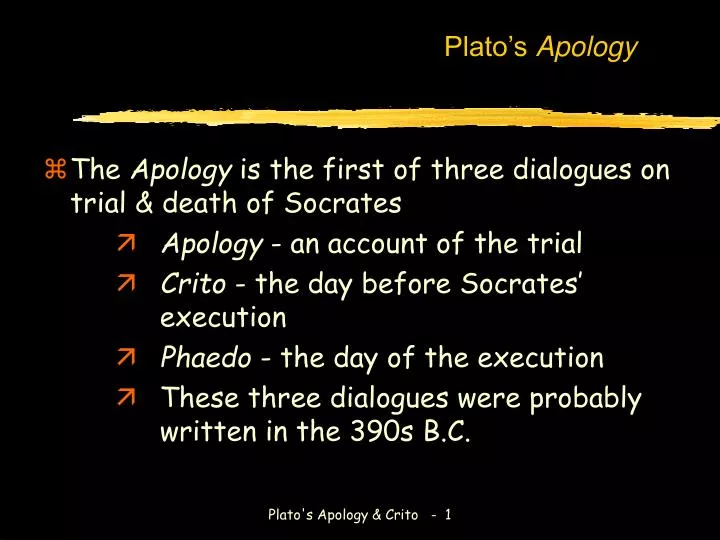


Another parallel to be drawn between the two figures is the polarizing and controversial effect each had on society, and their ultimate execution at the hands of the state.

Socrates himself authored no texts and remains a mystifying character for that reason, much like Jesus Christ. Herein lies the danger of Plato’s works it is easy to forget that all arguments (and each counter argument presented by each interlocutor) are Plato’s constructions. In his later works, Plato has been criticized for using the name of his protagonist/mentor as a mouthpiece to project his own ideas into the philosophical playing field. It is impossible to know whether Plato distorted the philosophical works of his mentor. In his famous dialogues, Plato constructs Socrates as an entity who directs lines of questioning at various other prominent characters of ancient Athenian society, each representing a different demographic or faction in the city. Plato implemented Socrates as his protagonist in all his work. The philosophical character of Socrates – the one that influenced all Western Philosophy – is a product of Plato himself. Having never grasped or conceptualized philosophy as well as Plato, Xenophon’s account of his mentor was purely biographical. 4th century BCE – 1st century CE, via Wikimedia Commons. The Socratic Mind Bust of Socrates, a copy of a bronze statue by Lysippos, c. By the number of posthumous accounts of his life and his death, it can be argued that Socrates was well known among the Athenian population and well liked. Politically Socrates remained a moderate as well and took no sides between the Athenian Democrats and the Athenian Oligarchs – the two rival political parties in his era. He roamed the streets of Athens barefoot wearing solely a robe. By historical accounts, written posthumously, Socrates held no regard to physical and material pleasures and affairs: he did not often bathe himself, and was indifferent to his physical appearance. He practiced moderation in everything that he did, from food to sex. Socrates was famously an unattractive man – known for his crooked and upturned nose, as can be noted in his busts, and large protruding gut. What is known about Socrates is that he was an Athenian citizen, fought in service of the city in the Peloponnesian War, and was educated in the city as well. The only historical accounts of his life come via two of his pupils: most notably the philosopher Plato, and the historian Xenophon. Not much is known about Socrates’ early life. 1810, via the National Gallery of Slovenia Early Life: What Led to the Trial of Socrates? Socrates with a Disciple and Diotima, by Franc Kavčič, c.


 0 kommentar(er)
0 kommentar(er)
